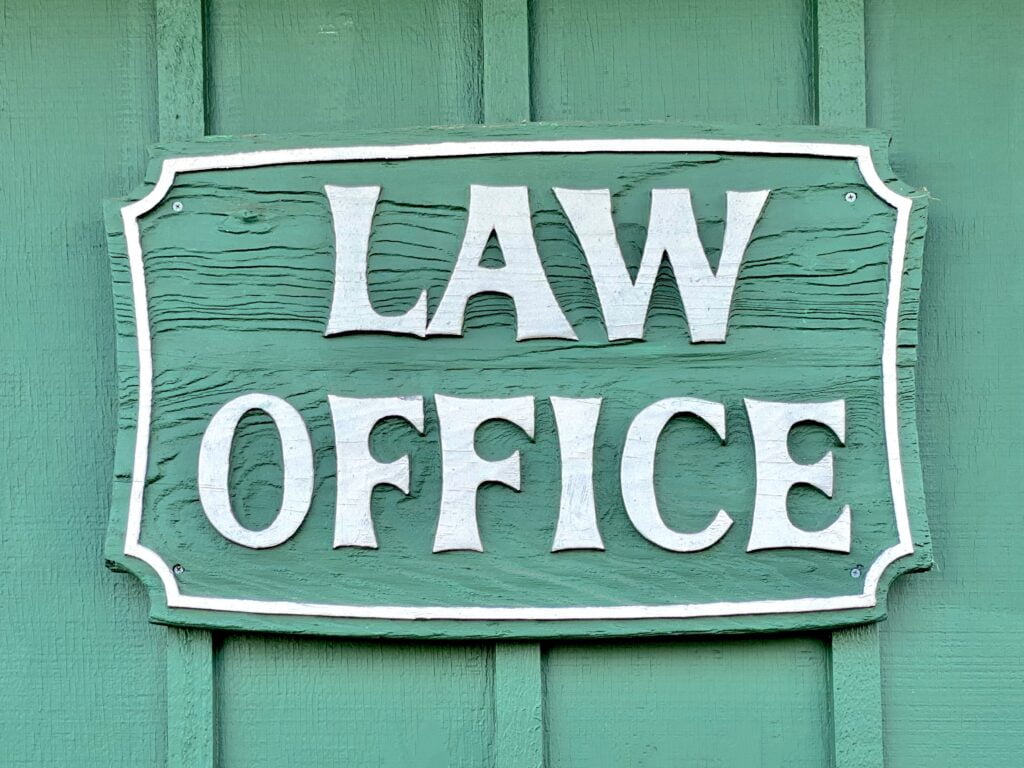
You may be wondering what you can do with a notary public license. A notary public is someone who can sign and witness documents and carries a notary stamp and a notary journal. But there’s more to it than that! In this blog post, we’ll explore some of the different things you can do with a notary license.
The work of a notary public

A notary public license, officially known as a notary commission, lets you do certain things, like witness signatures on documents.
A notary public commission certificate is typically provided by the Secretary of State after an applicant meets all of the requirements. This usually includes submitting an application and relevant commission paperwork, a filing fee, obtaining a notary bond, and the applicant not having a criminal record.
A commissioned notary must then purchase the required notary supplies like a notary seal (also known as a notary stamp) and a notary journal to perform notary work.
What you can do with your license depends on the state where you live. But some things are similar in most states. For example, here is a list of some of the things a notary license lets you do!
Common Notary Services
Notaries are often called upon to sign and witness important documents such as wills, trusts, contracts, mortgages, and deeds. However, did you know that notaries can also administer oaths and affirmations, take acknowledgments, and certify copies of documents? Notaries can also be commissioned to perform general duties such as checking identities and issuing certificates.
Notarize Documents

One of the most common things that people do with a notary license is to notarize documents. When you notarize a document, you are attesting to the fact that the person who has signed it is who they say they are. This is often used for things like mortgage documents or power of attorney forms.
Witness Signatures

Another common function of a notary is to witness signatures on documents. This means that you would be present when someone signs a document, and then you would sign it yourself to attest that the signature is genuine. This is often used for things like wills and trusts.
Administer Oaths and Affirmations

A notary can also administer oaths and affirmations. This means that a signer would swear that the contents of a document are correct.
Notary Public Jobs
Notaries public typically work regular business hours, although they may be required to work evenings or weekends on occasion to accommodate the schedules of their clients or employers. Some travel may be required to meet with clients at their homes or places of business.
Notaries often work in banks, law firms, real estate offices, or other businesses where their services are needed. Some notaries work as freelance notaries and travel to wherever their services are required.
Administrative and professional positions
Notaries are usually employed to provide services to the public or to customers of a private company. They offer their services during normal business hours. Most notaries have other jobs that take up a lot of their time. For example, office managers often act as notaries by notarizing documents when needed and completing tasks such as planning meeting rooms, scheduling office equipment, and advising the company on new employees.
Notaries often work in these places:
Realty agencies

Some properties require real estate notaries public to sign deeds and title documents.
Banks and Lenders
Many banks offer notarized services for customers. Banks are among the biggest employers of Notaries public in the United States. Banks typically use Notaries public to witness signatures on loan documents, such as mortgage documents. In some cases, banks will also require Notaries public to take acknowledgments of deeds for real estate transactions that involve their customers. Banks usually employ full-time staff notaries who work regular business hours during the week.
Mailbox stores

Places where you can rent a mailbox or ship items also typically hire notaries.
Law offices

Law firms are another major source of employment for Notaries public in the United States. Many law firms use in-house staff Notaries to witness signatures on legal documents and take acknowledgments of deeds for their clients. In some cases, law firms may also require their staff Notaries to certify copies of certain kinds of legal documents. Like banks, law firms usually employ full-time staff Notaries who work during regular business hours during the week. However, some law firms may require their staff Notaires to work extended hours or weekends on occasion in order to accommodate the schedules of their clients or attend off-site meetings or events related to their cases.
Local governments
Local governments typically need documents notarized.
Independent Notary Services
Becoming a notary is a great way to earn some extra income or even start your own business. If you’re detail-oriented, organized, and have excellent customer service skills, then becoming a notary could be the perfect career for you!
Notaries can start their businesses to work independently and offer on-demand support to private customers. These notaries typically provide mobile notary services. This is because they typically don’t have another job that allows for walk-ins throughout the day as described in the administrative and professional positions above.
Mobile Notary

A mobile notary is a notary public who travels to see their customers to provide notary services instead of the customer coming to them. Mobile notaries are useful in situations where the customer cannot come to the notary, such as if the customer is in a hospital or jail, or if the customer lives far away from the notary.
Some mobile notaries work for companies that offer on-demand notary services. These companies typically have a network of mobile notaries who are available to go to the customer’s location at any time, day or night.
Other mobile notaries are notaries who have started their own notary businesses. These notaries typically advertise their services online or in print, and customers can contact them to schedule an appointment.
Notary publics who work as mobile notaries typically charge more for their services than notaries who work in a fixed location because they have to travel to see their customers. These extra fees include travel fees or any other fees allowed by the state. States set maximum fees for notarial acts, but most states allow for adding additional itemized fees for travel or other related expenses. However, some state regulations either do not permit or limit additional fees that notaries can charge.
California has maximum fees for notarizations but does not impose any limits on additional fees like travel expenses.
If you’re interested in becoming a mobile notary, you can either work for an existing company or start your own business. Working as a mobile notary can be a great way to earn extra income or even start your own business.
Notary Signing Agents

Many notaries with additional notary education in financial documents are known as Loan Signing Agents. They usually work with escrow officers or other real estate professionals and are usually called for assisting with signature verification during a real estate transaction.
A loan signing agent is a notary public who specializes in witnessing signatures on loan documents. Loan signing agents are usually independent contractors who work for banks, lenders, or title companies.
Loan signing agents typically work during regular business hours during the week. However, some loan signing agents may be required to work extended hours or weekends on occasion in order to accommodate the schedules of their clients or attend off-site meetings or events related to their cases.
These types of notarizations usually command the highest income potential for the notary.
Conclusion
A career as a notary public can be both rewarding and exciting. If you’re considering becoming a notary public, there are many different opportunities available to you across a wide range of industries.
There are many different things that you can do with a notary license. Notaries are often called upon to sign and witness important documents, but they can also administer oaths and affirmations, take acknowledgments, and certify copies of documents. These are just some of the ways that you can use your notary license to help others.
A notary license can open up a variety of career opportunities, from working at a bank to starting your own business. With a notary license, you can work as a mobile notary, loan signing agent, or even start your own independent notary business. There are many different businesses and organizations that need the services of a notary, so becoming a notary is a great way to earn some extra income or even start your own business. Thanks for reading! We hope this article was helpful in learning about the different types of careers you can have with a notary license.
If you’re detail-oriented and have excellent customer service skills, then becoming a notary could be the perfect career for you!
